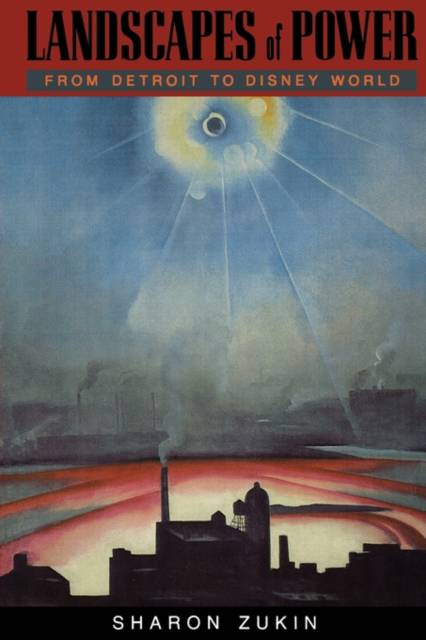
- Retrait gratuit dans votre magasin Club
- 7.000.000 titres dans notre catalogue
- Payer en toute sécurité
- Toujours un magasin près de chez vous
- Retrait gratuit dans votre magasin Club
- 7.000.0000 titres dans notre catalogue
- Payer en toute sécurité
- Toujours un magasin près de chez vous
41,95 €
+ 83 points
Description
The momentous changes which are transforming American life call for a new exploration of the economic and cultural landscape. In this book Sharon Zukin links our ever-expanding need to consume with two fundamental shifts: places of production have given way to spaces for services and paperwork, and the competitive edge has moved from industrial to cultural capital. From the steel mills of the Rust Belt, to the sterile malls of suburbia, to the gentrified urban centers of our largest cities, the "creative destruction" of our economy--a process by which a way of life is both lost and gained--results in a dramatically different landscape of economic power. Sharon Zukin probes the depth and diversity of this restructuring in a series of portraits of changed or changing American places. Beginning at River Rouge, Henry Ford's industrial complex in Dearborn, Michigan, and ending at Disney World, Zukin demonstrates how powerful interests shape the spaces we inhabit. Among the landscapes she examines are steeltowns in West Virginia and Michigan, affluent corporate suburbs in Westchester County, gentrified areas of lower Manhattan, and theme parks in Florida and California. In each of these case studies, new strategies of investment and employment are filtered through existing institutions, experience in both production and consumption, and represented in material products, aesthetic forms, and new perceptions of space and time. The current transformation differs from those of the past in that individuals and institutions now have far greater power to alter the course of change, making the creative destruction of landscape the most important cultural product of our time. Zukin's eclectic inquiry into the parameters of social action and the emergence of new cultural forms defines the interdisciplinary frontier where sociology, geography, economics, and urban and cultural studies meet.
Spécifications
Parties prenantes
- Auteur(s) :
- Editeur:
Contenu
- Nombre de pages :
- 338
- Langue:
- Anglais
Caractéristiques
- EAN:
- 9780520082885
- Date de parution :
- 12-03-93
- Format:
- Livre broché
- Format numérique:
- Trade paperback (VS)
- Dimensions :
- 152 mm x 227 mm
- Poids :
- 467 g

Les avis
Nous publions uniquement les avis qui respectent les conditions requises. Consultez nos conditions pour les avis.






